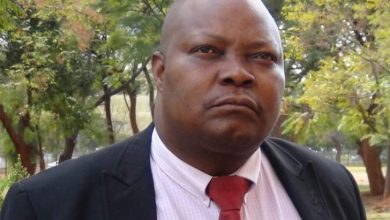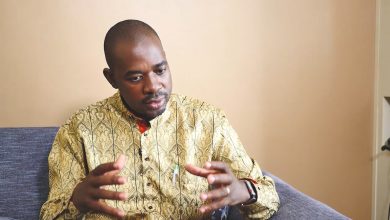Zapu mourns Johnson Mkandla

The late former regional magistrate, Johnson Mkandla has been described as a formidable figure whose role in the country’s struggle for independence and dedication in community involvement revealed his love for justice.
Mkandla (82) died Thursday at a local hospital where he was receiving treatment, his family said.
He spent some years in Rhodesian prisons for his activities in the liberation struggle, having started politics early after joining the National Democratic Party (NDP), the People’s Caretaker Council (PPC), the African National Council (ANC) and Zapu.
After independence, Mkandla served as a regional magistrate in Gweru from 1985 to 1993 and during his stint in the judiciary, he used to assist Gukurahundi victims to acquire legal documentation.
In 1998 when Mkandla was heading the Gukurahundi Compensation Committee, formed by people from Matabeleland, confronted Mugabe advising him to apologise for the 1980s genocide, which Mugabe reportedly agreed and even promised to allocate $10 million towards the cause.
But to Mkandla’s shock, instead of making an apology as the two had discussed, Mugabe referred to Gukurahundi as a “moment of madness” and denied it was a genocide.
In an interview with CITE, Mkandla’s second-born son, Sikhumbuzo, said the family was devastated by their father’s passing.
“His political career started in 1963 and he was detained in Gonakudzingwa, Wha Wha and Conemara. He served various roles and also served in the city council and was also ZAPU’s minister of education in exile. After independence, he became a regional magistrate serving Gweru, Bulawayo and Hwange. Not only was he dedicated to serving the country, but he was also deeply committed to his family and his death is a blow,” he said.
Mkandla said due to his late father’s works, there has been lobbying that he be accorded a hero status.
“The family has received calls from ex-detainees, war veterans and the party who are deliberating, perhaps he might be a provincial hero. The city council in realisation of his role in community involvement and national affairs including us a family, before political interference, have planned that he be buried at Lady Stanley Cemetery. But all these are provisional plans,” he said.
ZAPU president, Isaac Mabuka, said the party was mourning the loss of a man whose politics espoused principle.
“His passing will be a blow to the party as he was more of an advisor and handled all the party’s disciplinary actions against anyone. Mkandla gave advice on law and the party relied on him, as a former magistrate he knew almost everything concerning the law. We trusted him to offer expert counsel,” he said.
“Our disciplinary committee is run by elders but most of them have not done law so Mkandla would advise and educate others. His history is well-grounded in Zapu where he was a member for a long time. Even in his time in England when he was in exile, he helped Zimbabwean refugees settle.”
Zapu secretary-general, Dr Strike Mkandla, praised the former magistrate for pushing for justice for aggrieved victims.
“Mkandla was detained for some time and was a political activist. On Gukurahundi he pushed Mugabe for accountability and the party always seconded him to meetings hosted by the National Peace Reconciliation Commission (NPRC) where we requested him as a person of note and a professional to partake in those meetings. Mkandla was a human rights activist and had a good historical background,” he said.
Mkandla was born on 15 August in 1939 at Fort Rixon to Jabezi Mkandla and Maria Mkandla.
Mkandla attended school at St Chards in Fort Rixon, St Georges in Lupane and later on went to Empandeni Mission in Mangwe District and Lupane Mission.
He did his secondary education at Inyathi Mission and also continued with my schooling while in detention at Gonakundzingwa, Wha Wha and Connemara.
In detention, he read Political Science, Sociology and English.
It was through Mkandla’s political activities that he was expelled from teaching in 1966 by the Rhodesian government.
He was teaching in Lupane District at that time and the regime felt he was a bad influence to the school children and their communities.
Others who were expelled at the same time as Mkandla were the late Vice-President John Landa Nkomo who was teaching in Bulawayo at a school in Tshabalala, the late national hero, Sydney Donald Malunga who was at Fatima Mission in Lupane.
He then acquired a job as a sales manager at Mirtle’s Radio and Television in Bulawayo where he worked together with Sydney Malunga who was also the sales manager for another branch and they continued with their political activities.
After independence, he went to Law School at the University of Zimbabwe then worked in the civil service as a magistrate.
He left the bench after becoming a regional magistrate.
He is survived by wife Mildred and three surviving children.
Mourners are gathered at Number 2 Valeview, Riverside Suburb in Bulawayo.






